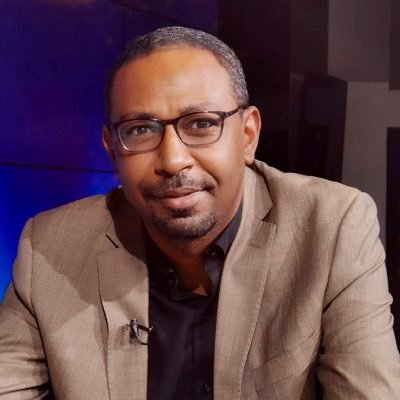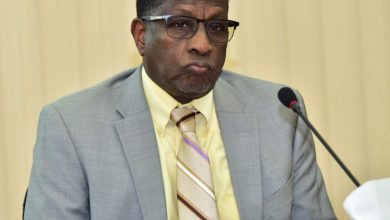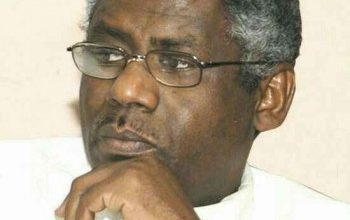The Economic Fallout of the Sudanese Crisis

Amjad Fareed Al-Tayeb
The outbreak of fighting between the Sudanese Armed Forces (SAF) and the Rapid Support Forces (RSF) has led to unprecedented destruction in the Sudanese capital, Khartoum, and other parts of the country. In addition to the human cost, which included hundreds of civilian deaths, thousands of wounded, and millions of displaced people, including refugees, there were also survivors of violations, including rape, physical assaults, torture, and arbitrary detentions based on identity, in harsh and degrading conditions.
Massacres based on ethnic affiliation, committed by the RSF militia in Darfur, especially in West Darfur State, have added to the suffering. As a result, Sudan has become one of the world’s largest countries in terms of refugees and displaced persons, with over 7 million Sudanese affected and 5.4 million displaced since the outbreak of war in mid-April last year.
The residents of Khartoum, which has become a ghost city after more than two-thirds of its population fled, were subjected to widespread looting by the RSF. The militia members forcibly entered abandoned houses and looted their properties. Sometimes, houses were invaded in the presence of their owners, who were either robbed at gunpoint or forced to leave. Stories of militia members occupying houses and boasting about it on social media, and threatening the original owners that they would never see their homes again have become commonplace scenes of war in Khartoum.
The foot soldiers of the hired militia, who often do not know why they are fighting, found justifications for looting people’s property in the political advisor to the militia, Youssef Ezzat, who spoke about ending the 1956 state, or the slogans of the former Sovereignty Council member Mohamed Hassan Eltaayshi about ending historical imbalances in the formation of the Sudanese state, or the documents of the former Minister of Justice Nasr al-Din Abdel Bari about governance and administration discussed in the political support mobilisation conferences of the militia. These slogans aimed to construct an alternative reality, compelling people to deny what their eyes see and experience themselves and live in an imaginary world where Hemeti and his special forces represent a legend of goodness, justice, and peace.
One of the biggest negative impacts of the war, the consequences of which will continue for a long time, is the economic damage it caused to the country. In addition to the direct material losses resulting from the destruction of infrastructure, buildings, and commercial, industrial, and residential facilities, the war severely impacted the national economy. The economy was already going through a difficult recovery journey after the 25 October 2021 coup, which interrupted the country’s path to debt relief through the Heavily Indebted Poor Countries (HIPC) initiative. The civilian transitional government had begun implementing a bold and harsh reform program aimed at economic stability, including unifying the exchange rate, reducing the budget deficit by lifting subsidies to lower inflation while implementing a social support program for poor families affected by the reforms, and increasing efforts to support agricultural seasons to boost production.
At that time, the government faced significant public anger due to the austerity measures required to implement this program. However, its fruits began to appear with considerable exchange rate stability. A substantial increase in public sector salaries contributed to mitigating the effects of austerity measures on citizens, although it did not eliminate them entirely.
Economic reforms and joint efforts with the international community began to bear fruit in June 2021 when the executive boards of the World Bank and the International Monetary Fund determined that Sudan had taken the necessary steps to start receiving debt relief under the HIPC initiative. Sudan became the thirty-eighth country to reach this stage since the initiative’s launch, known as the Decision Point for the Heavily Indebted Poor Countries. Sudan’s overdue interest payments to the World Bank, amounting to $1.2 billion, were settled on March 26, 2021, through advance financing provided by the United States. Sudan’s overdue debt of $413 million to the African Development Bank was settled on May 12, 2021, through advance financing provided by the United Kingdom government and contributions from Sweden and Ireland.
Settlements were made for Sudan’s overdue debts to the International Monetary Fund (IMF), amounting to $1.4 billion, on June 29, 2021, with the assistance of interim financing from the French government. Paris Club creditors also cancelled $14.1 billion of their debts to Sudan out of a total of $23 billion (approximately 60 per cent). Negotiations by the transitional government, supported by the international community, began in August 2021 to settle $20 billion of debts owed to non-Paris Club creditors. Unfortunately, the path to debt relief, along with other economic reforms, was disrupted due to the coup by the two generals on October 25, 2021.
This economic loss was not the only one borne by Sudan as a result of the coup. The United States suspended the grant approved by Congress for Sudan, amounting to $700 million, at the end of 2020. Furthermore, they halted their annual supply of 350,000 metric tons of wheat to Sudan, valued at around $125 million. Sudan also lost a budget support grant of $500 million provided by the World Bank. Sudan was awaiting approval for an additional $500 million in funding for energy, food security, and natural resource management projects by the end of December 2021. Additionally, all outstanding payments for World Bank projects in Sudan, totalling $760 million, were frozen.
Furthermore, Sudan lost a $1 billion grant allocated by the International Development Association (IDA) in its operational plan as part of the 2019 financing round, which was supposed to be disbursed to the Sudanese government in February 2022. This amount was reallocated to other countries on the IDA’s waiting list by June 2022.
In addition to the above, since the decision by the Sudanese government to unify the exchange rate in February 2021, foreign exchange inflows through the official banking system began. This included financial transfers from Sudanese expatriates who were eager to support the transitional government at the time. Between February 2021 and October 2021, Sudan received about $1.2 billion from net foreign exchange flows from expatriate remittances. Assuming that this trend would have continued if not for the coup, annual foreign currency inflows would have reached $2 billion, given the most conservative estimates. In short, the cost of the recklessness of the generals who carried out their coup before their falling out over the spoils – a cost borne by Sudan and the Sudanese people – was approximately $9 billion.
The impact of this recklessness escalated and multiplied when war erupted between the generals. What was once a nation of Sudanese debating and awaiting economic reform measures was displaced within their own country and in neighbouring states. International relief agencies estimated the necessary supplies to aid the Sudanese amidst this humanitarian disaster since the outbreak of the war until now to be around $2.6 billion. However, only $841 million of it has been made available so far. The international enthusiasm and rush to support Sudan and the Sudanese people after their brave and peaceful revolution in April 2019 has waned, and only one-third of what is needed has been made available for the relief of Sudanese civilians in the midst of this accursed war.
The value of the Sudanese pound has sharply declined since the outbreak of the war on April 15th. Its current market value is now over 830 Sudanese pounds per US dollar, which is approximately double its price before the October 25th coup in 2021. The economic activity has also contracted to half of what it was before the war, and the average income of households in urban and rural areas has decreased to 40% compared to pre-war levels. Additionally, state workers have experienced delays in receiving their salaries for more than 4 months. The scarcity of goods and services has led to the growth of the war economy and informal markets, making it increasingly difficult to control, even in times of stability.
Over 66% of food companies and factories in the country have ceased operations, while another 20% operate at reduced capacities. Some large private economic institutions, such as “Dal,” “Hajar,” and “Saleh Abdul Rahman Yakub,” have announced the closure of their operations in the country. This has resulted in sudden and widespread unemployment, with 50.3% of Sudanese workers losing their jobs. In the agricultural sector, 20.4% of workers lost their jobs, 81.3% in the industrial sector, and 47.9% in the services sector.
Estimates indicate that the economic cost of the war on Sudan since its outbreak has reached $10 billion. This includes estimates of general economic losses, lost productivity, and infrastructure damage. This estimate does not account for the personal losses suffered by citizens or the damage to the banking system. If the war continues until the end of the year, this figure is expected to rise to $15 billion.
The Gross Domestic Product (GDP) is expected to decrease by 48%, with losses of 21% in the agriculture sector, 70% in the industrial sector, and 49% in the services sector. The impact on the gold mining sector, which contributes 15% to the GDP, is significant, with expected losses of $1 billion this year. With the prevalence of corruption and the absence or weakness of the state in many parts of the country, this situation will likely further entice gold adventurers and crisis traders, especially Russian companies, as mentioned in a previous article, to exploit Sudanese resources either on their own or under the protection of one of the warring parties.
Continuing the political adventures some undertake, fuelled by their desire for power and armed conflict, will only intensify the war in the country. The only good thing that can happen for the Sudanese people is for this war to stop now. The continuation of this war and the political manoeuvres that fuel it in pursuit of political sovereignty will not succeed. If they do, that sovereignty will be sovereignty over ashes.


